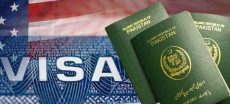Pakistan is moving towards a modern customs system by integrating AI technology. The new AI-based system aims to replace manual verification, making customs processes faster and more transparent.
Prime Minister Muhammad Shehbaz Sharif emphasized the need to reduce delays and simplify procedures. He instructed authorities to adopt international best practices to support businesses involved in imports and exports.
The government’s customs reforms include introducing a faceless assessment mechanism. This system uses AI to assess goods without human intervention, ensuring fairness and reducing chances of corruption. Independent officers will also be empowered to handle appeals related to reassessments, adding another layer of transparency.
AI-enabled scanners are already in use at ports, helping reduce the time needed to clear cargo. Soon, an AI-based Risk Management System will be launched to better identify high-risk shipments. This technology will enhance the detection of smuggling and illegal goods, promoting legal trade.
Officials shared that stronger enforcement measures have lowered illegal transportation of goods. As a result, more shipments are now cleared through formal customs channels.
The Prime Minister chaired a meeting attended by key ministers and officials. They reviewed progress on customs reforms and stressed the importance of quick implementation. The focus remains on making Pakistan’s trade environment more efficient and investor-friendly.
With AI integration, Pakistan aims to boost trade growth, ease business operations, and increase national revenue. The government is committed to ensuring these reforms benefit the economy and promote smoother trade.
In conclusion, the use of AI in customs marks a significant step toward modernization. This technology will streamline verification, reduce corruption, and accelerate cargo clearance, supporting Pakistan’s economic goals.
In other related news also read Non-Custom Paid Car Inspections Start in Lower Dir











